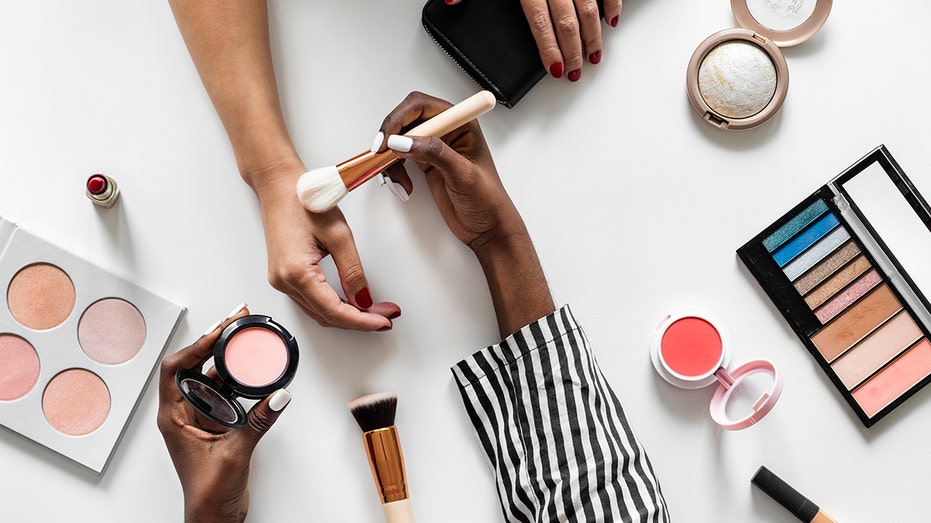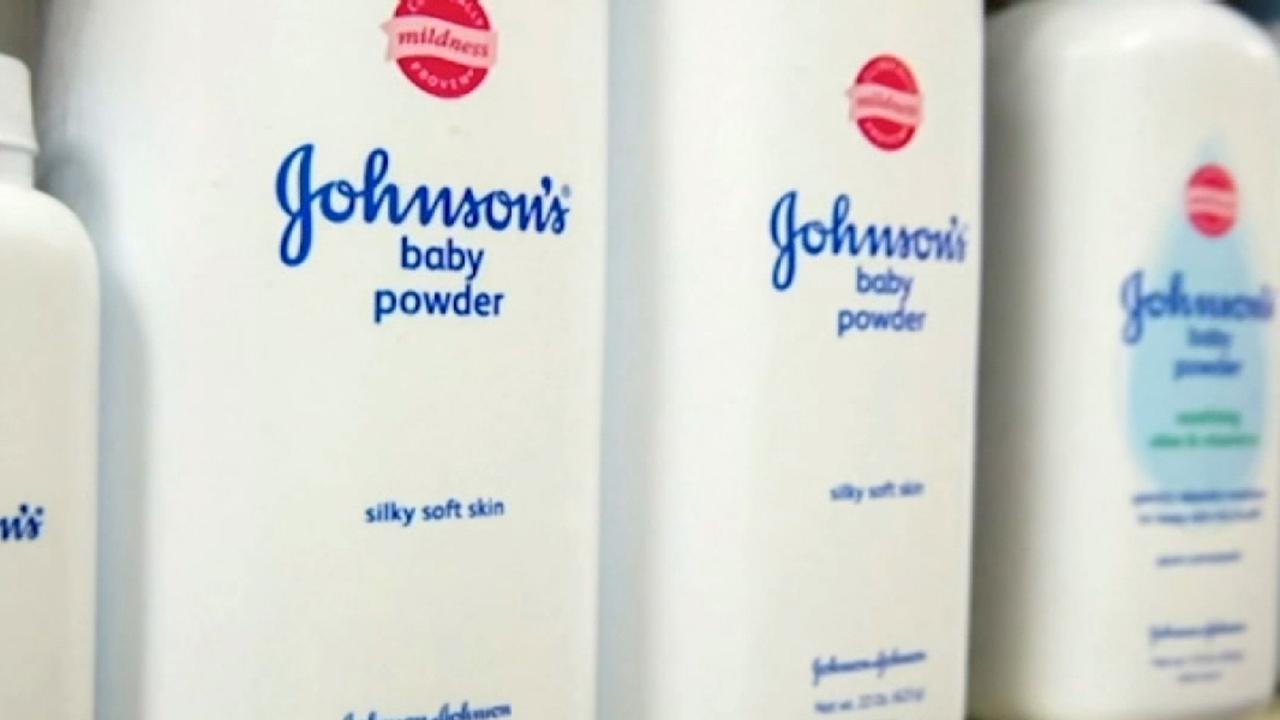Chanel, Revlon, L'Oreal pivoting away from talc in some products
The moves come amid a reappraisal of talc in body powders and cosmetics by consumers, regulators and manufacturers
Chanel, Revlon and L’Oreal, three of the biggest brands in cosmetics, are quietly moving away from using talc in some products as U.S. cancer lawsuits and consumer concerns mount.

Cosmetics brands like Revlon, Chanel and L'Oreal are moving away from using talc, a mineral sometimes found in the same rock as asbestos, a potent carcinogen.
Luxury beauty company Chanel has removed talc from a loose face powder and dropped a talc body powder because of negative perceptions around the mineral, court documents reviewed by Reuters show.
Revlon Inc removed talc from its body products, and L’Oreal SA is exploring alternatives for the mineral, those companies told Reuters.
JOHNSON & JOHNSON TO DISCONTINUE TALC-BASED BABY POWDER
The moves come amid a reappraisal of talc in body powders and cosmetics by consumers, regulators and manufacturers. Talc - which is sometimes found in the same rock as asbestos, a potent carcinogen - is used in thousands of cosmetic and personal care products to absorb moisture, prevent caking and add softness.
Thousands of cancer lawsuits, some dating back to 2013, have been filed against body-powder market leader Johnson & Johnson. Allegations that asbestos contamination caused plaintiffs’ cancers began in 2017. Other makers of talc powders also face suits, including Revlon, Chanel and Avon, securities filings and court records show.
Scrutiny of talc products intensified after a 2018 Reuters investigation reported that J&J knew for decades that asbestos lurked in its talc and powders. The company has disputed Reuters’ report and maintains its powders are safe and asbestos free.
JUDGE RULES TALC LAWSUITS AGAINST J&J CAN PROCEED
J&J announced last month that it would stop selling talc Baby Powder in the United States and Canada, attributing the decision to declining sales and negative publicity.
In March, a Chanel representative disclosed in a court deposition that in 2017 the company had stopped making a talc-based body powder, scented with its iconic No. 5 fragrance that it had made since 1924. The deposition was taken in a 2018 case filed in a Los Angeles court. In it, a California woman alleges she got mesothelioma, in part from asbestos-tainted Chanel and J&J powders she used for decades.
Asbestos is the only well established cause of mesothelioma, an incurable rare cancer of the lining of the lungs and other organs.
Chanel representative Amy Wyatt said in the deposition that Chanel was sued for the first time over its talc powder in 2016 and she denied Chanel powders contained asbestos.
MAKEUP SALES APPEAR WASHED OUT AS WOMEN GO AU NATUREL
“We know that it was a safe product,” Wyatt said in the deposition. But “we determined from public perception to remove it from the market.”
Wyatt said Chanel had also removed talc from its loose face powder, but she was not sure when the new formulation would be on the market. She did not say what the talc was replaced with.
KYLIE JENNER UNLOADS $600 MILLION STAKE IN BEAUTY COMPANY
Chanel told Reuters that it routinely updates its products “to ensure we continue to meet our customers’ changing needs and expectations,” a spokeswoman said in an email.
Chanel, which continues to use talc in other products including pressed powder, blush and eye shadow, said all the talc it uses is “selected according to strict purity criteria, fully complies with current global regulations, and is safe under standard conditions of cosmetic use.”
The privately held company did not respond to questions about the deposition or litigation.
A Revlon spokesman told Reuters the company removed talc from its body products. He declined to say when or why; he also declined to comment on litigation.
L’Oreal said it is looking for a talc replacement but has not found anything that works as well.
“Well known partial alternatives exist, and we continue to explore and seriously consider performant alternatives,” a spokeswoman told Reuters in an email. “But none meet the same performance for our products.”
COTY SHAKES UP LEADERSHIP AFTER KYLIE JENNER FORBES BILLIONAIRE LIST CONTROVERSY
L’Oreal - like other companies - requires its suppliers to certify annually that its talc is asbestos-free, and it does in-house testing, she said.
“We have not detected any trace of asbestos in any of our raw materials containing more than 20% talcum powder,” L’Oreal’s spokeswoman said.
Other personal care companies have also stopped selling talc powder. Germany’s Beiersdorf said it switched to corn starch in its Nivea baby powder in 2018. Bausch Health changed the formula of its Shower to Shower powder in 2018 “to keep the product in line with market trends and customer preferences,” and not because of safety concerns, a spokeswoman said.
Bausch, which last sold talc powder in February 2019, has been named in 165 lawsuits; 12 are pending, securities filings show.
Avon, which declined to comment, said in a securities filing that 128 lawsuits were pending against it over talc products.
Sanofi, maker of Gold Bond powder, told Reuters it stood by the safety of its talc powder and was “vigorously” contesting talc lawsuits against it.
“Sanofi will continue to evaluate its product offerings in light of supply and consumer demand,” a spokesman said.
Globally, consumers are expected to purchase 139,350 tonnes of talc this year, down 0.6 percent from last year, according to Euromonitor International.
Last year, during an analysis of 52 talc-containing cosmetic products, the U.S. Food and Drug Administration found asbestos in nine products, including three sold by tween retailer Claire’s and one bottle of Johnson’s Baby Powder. All products were voluntarily recalled.
GET FOX BUSINESS ON THE GO BY CLICKING HERE
A spokeswoman said Claire’s had stopped using talc, and replaced it with mica in most of its products.
The FDA is analyzing 50 more samples this year and is considering establishing an asbestos testing standard. Canada’s Health Ministry tentatively concluded in 2018 that talc itself may cause lung problems if inhaled, and ovarian cancer if used in the genital area. A final decision, expected next year, could lead to a ban or restriction on the use of talc in certain products in Canada.




















